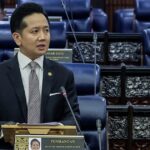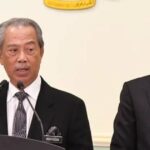In the digital age, the manipulation of online narratives has become a ubiquitous phenomenon, with governments, political entities, and individuals alike engaging in the dissemination of information and disinformation for various purposes. While China’s notorious internet brigade has often taken centre stage in discussions about online manipulation, it’s crucial to recognize that such activities are not exclusive to any single country or government. Indeed, recent instances, such as the emergence of profiles like @LKYMM23 based in India, underscore the global nature of this phenomenon.

@LKYMM23, created in September last year, represents a prime example of how individuals or groups outside of China are also leveraging social media platforms to shape narratives. The profile strategically shares quotes and video snippets featuring Lee Kuan Yew, Singapore’s founding father, while interjecting commentary on diverse topics such as the Israel-Palestine conflict and the significance of the Tamil population in India to Singapore. This multifaceted approach demonstrates a concerted effort to influence public opinion on a range of issues, both domestic and international.

One of the key observations from the activities of @LKYMM23 is the integration of regional issues into broader geopolitical narratives. By weaving discussions on the Israel-Palestine conflict with references to Lee Kuan Yew’s perspectives, the profile attempts to lend credibility to its viewpoints while simultaneously appealing to specific audience segments. Moreover, by highlighting the importance of the Tamil population in India to Singapore, @LKYMM23 aims to establish connections and foster support from individuals with shared cultural backgrounds.

However, it’s essential to acknowledge that while such efforts may mirror China’s internet brigade tactics to some extent, they often lack the same level of coordination and resources. China’s government-backed trolling operations benefit from extensive funding, organizational structures, and technological capabilities, allowing for systematic and widespread dissemination of propaganda. In contrast, profiles like @LKYMM23 operate on a smaller scale and may not have comparable resources at their disposal.

Despite these disparities, the rise of profiles like @LKYMM23 highlights the potential for other countries, including India, to develop more sophisticated online manipulation tactics in the future. As internet penetration continues to grow globally and social media platforms remain influential sources of information, governments and non-state actors alike may increasingly turn to online trolling and disinformation as tools of influence.
In conclusion, the case of @LKYMM23 serves as a reminder that internet trolling and disinformation are not limited to China’s government but are part of a broader global phenomenon. By examining the tactics employed by such profiles, we gain insights into the evolving nature of online manipulation and the challenges it poses to democratic discourse and information integrity. As awareness of these issues grows, efforts to combat online manipulation must remain vigilant and adaptive to address the changing landscape of digital influence.








